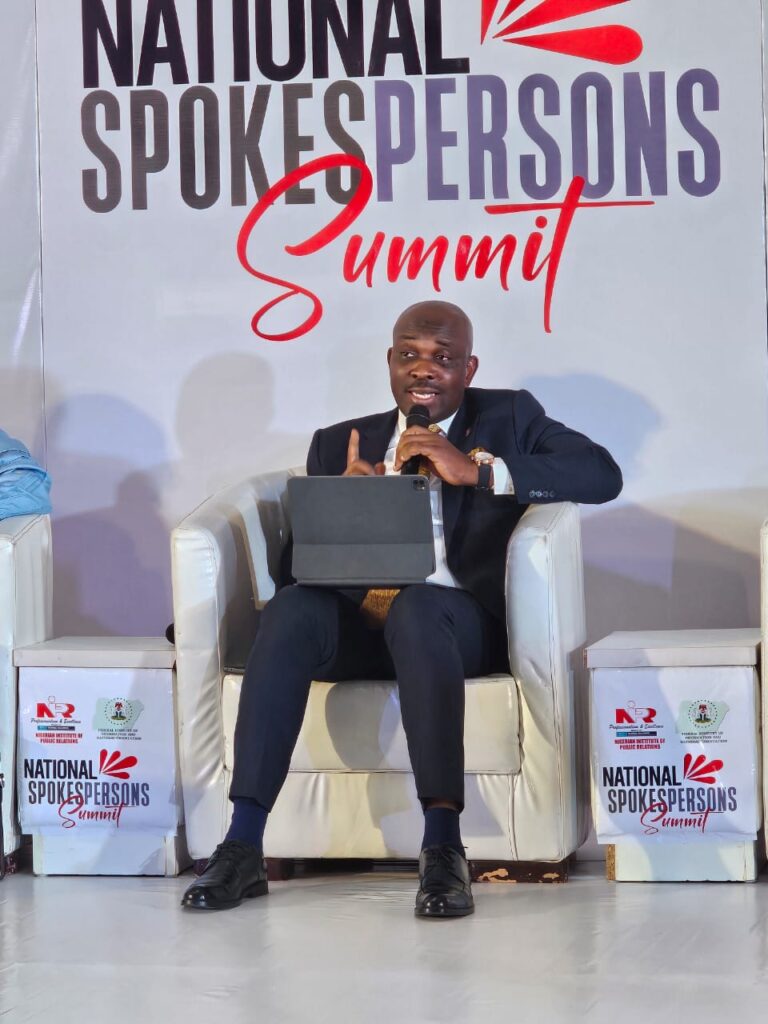Four future-proofing strategies every corporate communications professional should know – ACAMB President, Rasheed Bolarinwa
The Nigerian Institute of Public Relations (NIPR) in partnership with the Federal Ministry of Information and National Orientation is holding a four-day National Spokespersons Summit tagged: ‘Change Narratives, Change Society’
The summit, ongoing in Abuja started on Monday, March 25 and will end tomorrow, Thursday, March 28.
One of the facilitators at the summit, Rasheed Bolarinwa, President, Association of Corporate & Marketing Communications Professionals in Nigeria Banks (ACAMB) who on Wednesday (today) delivered a lecture on ‘Future Proofing Corporate Communications’ unveiled concept, strategies, tips and pillars of ‘future proofing’ and ‘corporate communications’.

According to him, “To future-proof is to anticipate and prepare for future developments, changes, or challenges to minimize negative impacts & seize opportunities. Corporate communication on the hand refers to the collection of activities, strategies, and processes used by a company to communicate internally with its employees and externally with a range of stakeholders, including customers, investors, regulators, the media, and the public. Future-proof Corporate Communication on the other hand involves adapting strategies, technologies, and practices to anticipate and respond to future changes and challenges. This approach ensures that a company’s communication infrastructure remains effective, resilient, and relevant in the face of technological advancements, evolving market trends, and shifting stakeholder expectations.”
Bolarinwa explained that the future of corporate communications is beyond just conveying messages. He said corporate communications also involves guiding strategy and influencing the very essence of organizations.
“The future of corporate communications is not just about conveying messages but also about guiding strategy and influencing the very essence of organizations. Adaptation, centralization, and data-driven decision-making will be key to success, as the role of corporate communicators continues to expand and diversify.”
While giving tips to future proof corporate communications, the Head, Corporate Communications of Polaris Bank said corporate communications professionals should anticipate big trends, make use of freelancers and create an environment that promotes innovation.
The journalist cum banker identified the corporate communication pillars as Gatekeeping, Crisis Management, Publicity/Visibility and Stakeholder Management.
According to him, “integrating the pillars of corporate communications into a future-proofing strategy ensures that corporate communications remain effective, agile, and responsive to changes in the external environment, technology, and stakeholder expectations. It involves both the adoption of new tools & platforms and a strategic approach to messaging, engagement, and reputation management.
Bolarinwa’s four Future Proofing Corporate Communication Strategies include;
- Investing in Advanced Technologies
Leveraging AI and machine learning tools to monitor and analyze social media and online content for potential threats, including deep-fakes and misinformation.
- Enhancing Digital Literacy
Educating employees and stakeholders about the risks associated with deep-fakes and misinformation, and how to critically assess the credibility of online information.
- Developing Rapid Response Mechanisms
Establishing protocols for quickly addressing and correcting misinformation and managing crises that arise on social media.
- Strengthening Stakeholder Relationships
Building trust through consistent, transparent communication and engaging with stakeholders across multiple channels to reinforce credibility.
The ACAMB boss listed Impact of Future Proofing Corporate Communications as follows;
Technological Advancements
Crisis Management and Resilience
Regulatory and Compliance Changes
Shifting Stakeholder Expectations
Globalization and Market Dynamics
Combatting Misinformation



